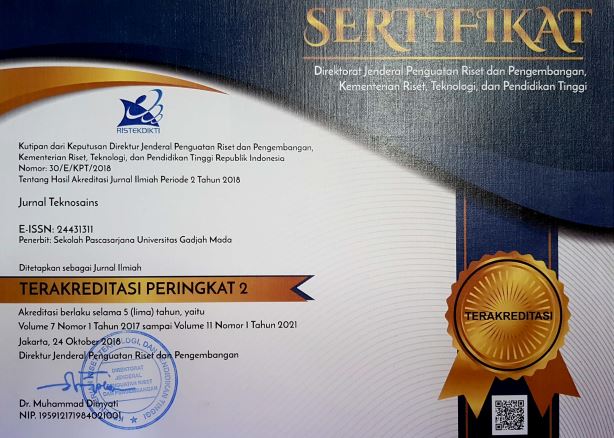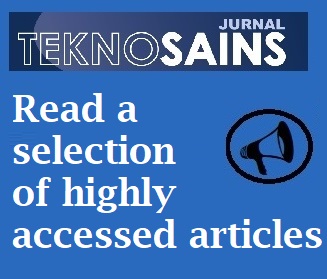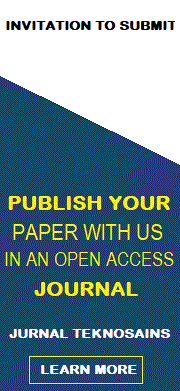THERMAL CHANGES OBSERVED AT DRILLING SITE DURING BONE DRILLING Model study in bovine rib
Dedy Kusuma(1*)
(1) Department of Biomedical, Faculty of Dentistry Gadjah Mada University, Yogyakarta, Indonesia
(*) Corresponding Author
Abstract
The use of bone drill in the process of odontectomy and preparation of dental implant may increase temperature around drilling hole. As thermal changes are the critical precursor to physiological bone healing, increased of temperature over threshold must be minimized. The aim of this model study was to compare the temperature changes that were generated during bone drilling with various speeds. Eighteen fresh bovine ribs were chosen due to the similarity of physical properties and dimension of human mandible. A constant drill load of 4.06N was applied throughout the drilling procedures via a drilling rig. Bovine ribs were drilled by using the same bur geometry (twist drill, 120 point angle) at low speed (8.750 rpm, 21.875 rpm, 35.000 rpm). The bone temperature changes generated by the drilling process were measured measured by K-type thermocouple. The speed of 8750 rpm produced a maximum temperature changes in both distance of 1 mm and 2 mm from drilling hole. Minimal temperature changes were recorded for the speed of 35.000 rpm. ANOVA test, showed the mean of thermal changes for each of speed at distance 1 and 2 mm from drilling hole. The clinical benefits of using speed below 35000 rpm need to be considered due to the potential risk of thermal damage.
Full Text:
PDFArticle Metrics
Refbacks
- There are currently no refbacks.
Copyright (c) 2014 Dedy Kusuma

This work is licensed under a Creative Commons Attribution-ShareAlike 4.0 International License.
Copyright © 2024 Jurnal Teknosains Submit an Article Tracking Your Submission
Editorial Policies Publishing System Copyright Notice Site Map Journal History Visitor Statistics Abstracting & Indexing









